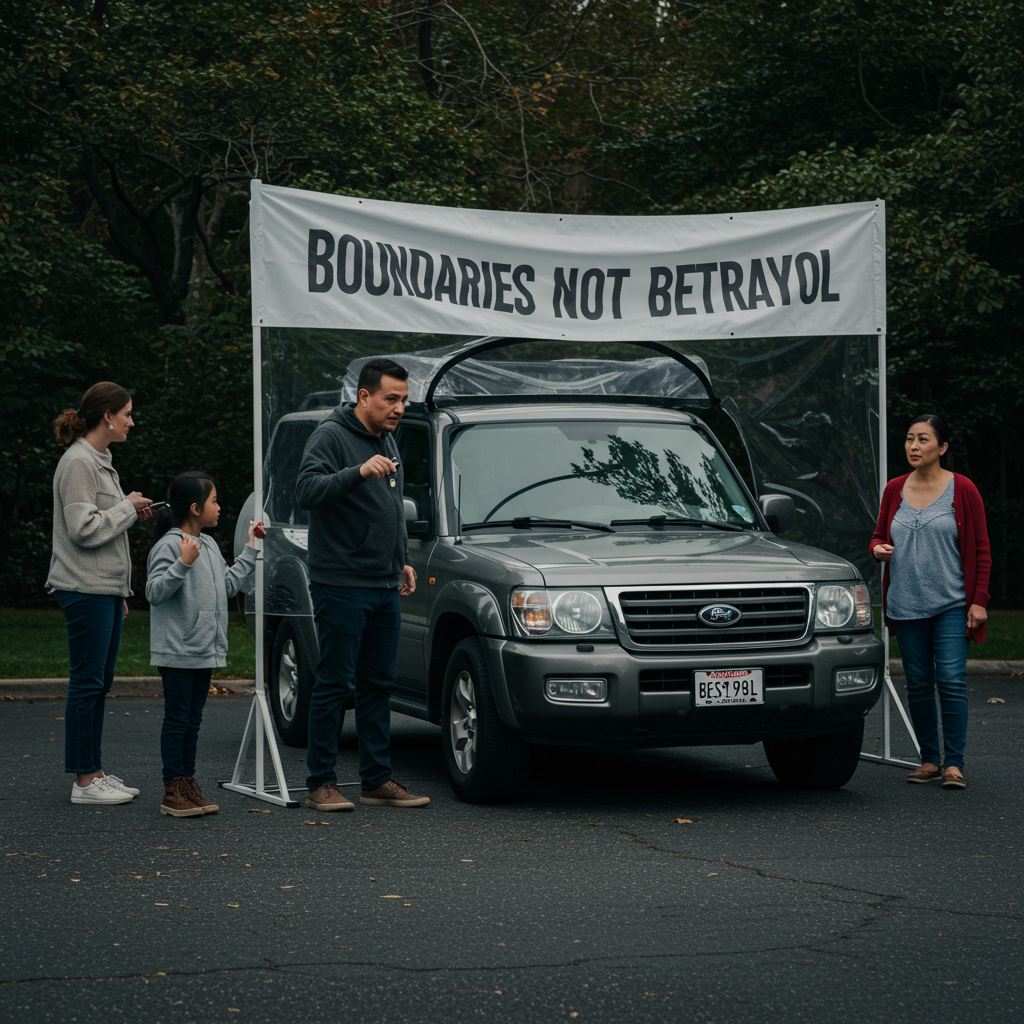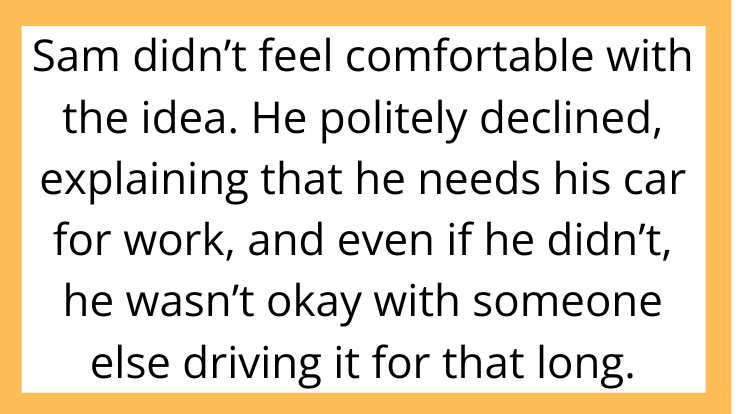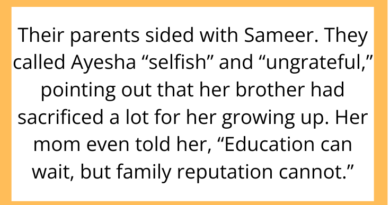AITAH for Refusing to Lend My Car to My Sister for Her Vacation?
When family asks for a favor, saying no can feel like you’re letting them down—or worse, like you’re the villain. In this AITAH scenario, a simple request to borrow a car spiraled into a heated conflict that left everyone questioning who was really in the wrong.
The Situation: A Simple Request or an Overstep?

A 32-year-old man—let’s call him Sam—shared his dilemma on r/AITAH. Sam owns a reliable SUV that he uses daily for work and errands. His younger sister, Emily, 28, recently planned a two-week road trip with her friends to celebrate finishing grad school.
A week before she was set to leave, Emily asked if she could borrow Sam’s SUV. She said it would save her hundreds of dollars in rental fees and insisted she’d be extremely careful.
Sam didn’t feel comfortable with the idea. He politely declined, explaining that he needs his car for work, and even if he didn’t, he wasn’t okay with someone else driving it for that long.
Emily was furious. She called him selfish, unsupportive, and said he was punishing her for wanting to have a little fun. Their parents agreed with Emily and told Sam he should “do the right thing” for family.
Sam turned to Reddit to ask: AITAH for refusing to lend my car to my sister?
Drawing Boundaries: Is Protecting Your Property Selfish?

Why Sam Said No
Cars are expensive, high-maintenance, and easy to damage—especially on a long road trip. Sam wasn’t comfortable with the idea of being on the hook if something went wrong.
He also pointed out that even if Emily promised to be careful, she couldn’t control other drivers, bad weather, or theft.
In his view, declining wasn’t about punishing her—it was about protecting his livelihood and avoiding stress.
Why Emily Feels Entitled
From Emily’s perspective, Sam’s refusal seemed petty and mean-spirited. She believed that family should help each other, and that he could “go without” for a couple of weeks.
She argued that Sam could take public transportation or work from home. In her mind, saving her money and supporting her celebration should matter more than his convenience.
Reddit Weighs In: Who’s the Villain?

The AITAH community overwhelmingly sided with Sam.
Top comments pointed out:
-
Lending a car is a major liability.
-
Two weeks is a long time to be without transportation.
-
Just because you own something doesn’t mean you owe it to family.
One commenter wrote:
“You’re not a villain for not wanting to risk thousands of dollars in damage so your sister can have a vacation.”
Another added:
“If she can afford a road trip, she can afford a rental.”
A minority of users sympathized with Emily, suggesting that Sam could have compromised by offering the car for a few days or helping cover part of the rental cost.
The Bigger Picture: Family, Guilt, and Boundaries

This story touches on a common issue: when family uses guilt to get what they want.
While it’s wonderful to be generous, generosity should be a choice—not an obligation enforced by shaming or pressure.
Sam didn’t say no because he doesn’t love his sister. He said no because the request crossed a line he wasn’t comfortable with.
What Could Sam Have Done Differently?

Communicate Clearly and Early
When Emily first brought up the trip, Sam could have set expectations by saying he doesn’t lend out his car, ever. This might have reduced her disappointment later.
Offer Alternatives
Instead of just saying no, he could have offered to help her research discounts or chip in a little toward the rental.
Stand Firm Without Guilt
Ultimately, it’s Sam’s property. He doesn’t have to justify not wanting to risk it.
The Takeaway: You’re Not Obligated to Sacrifice Your Comfort

Being family doesn’t mean you have to say yes to everything. Lending out a car is a big ask, and it’s perfectly reasonable to say no—even if it disappoints someone you care about.
Setting boundaries is not an act of cruelty. It’s an act of respect for yourself and your property.



